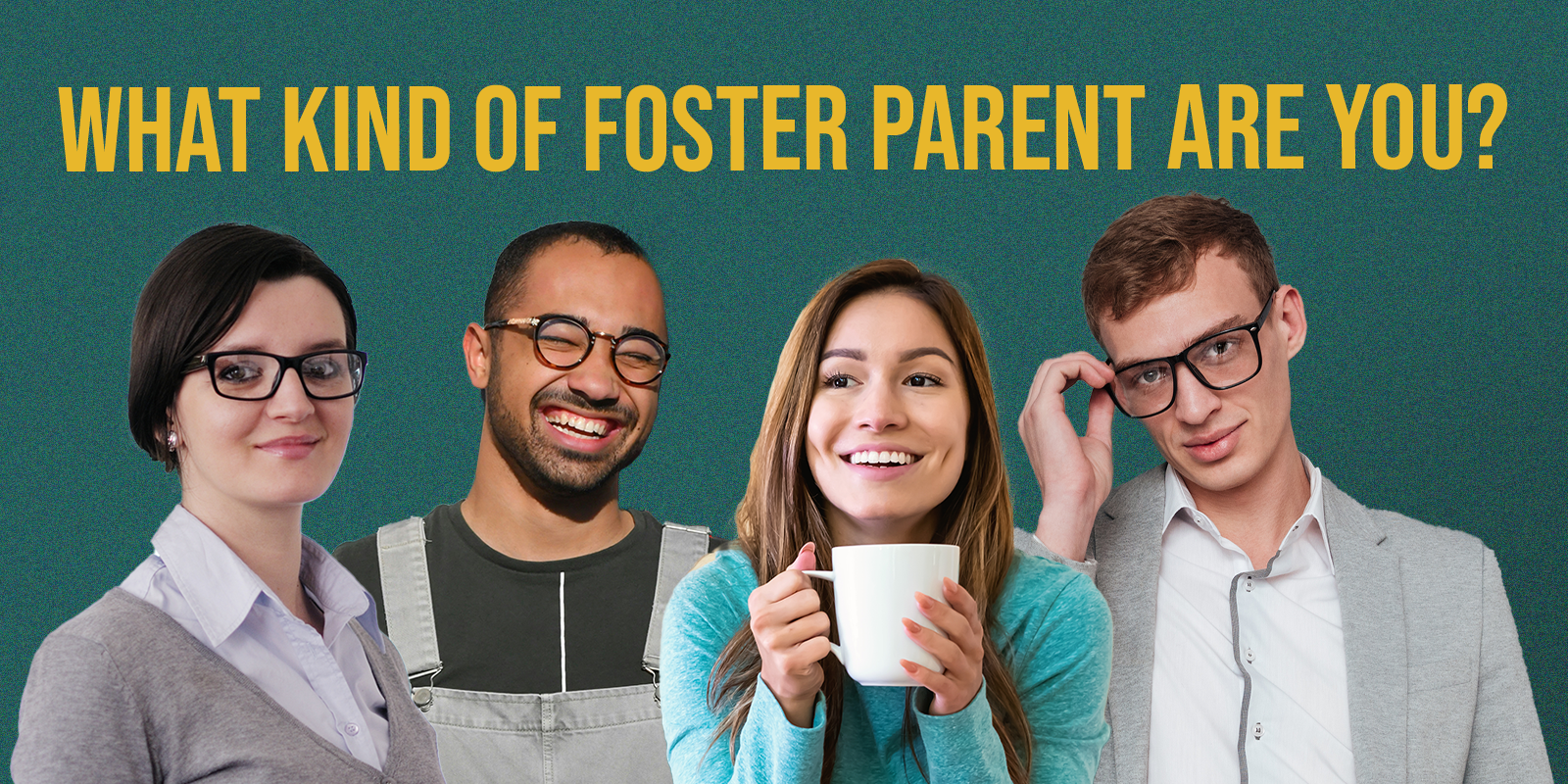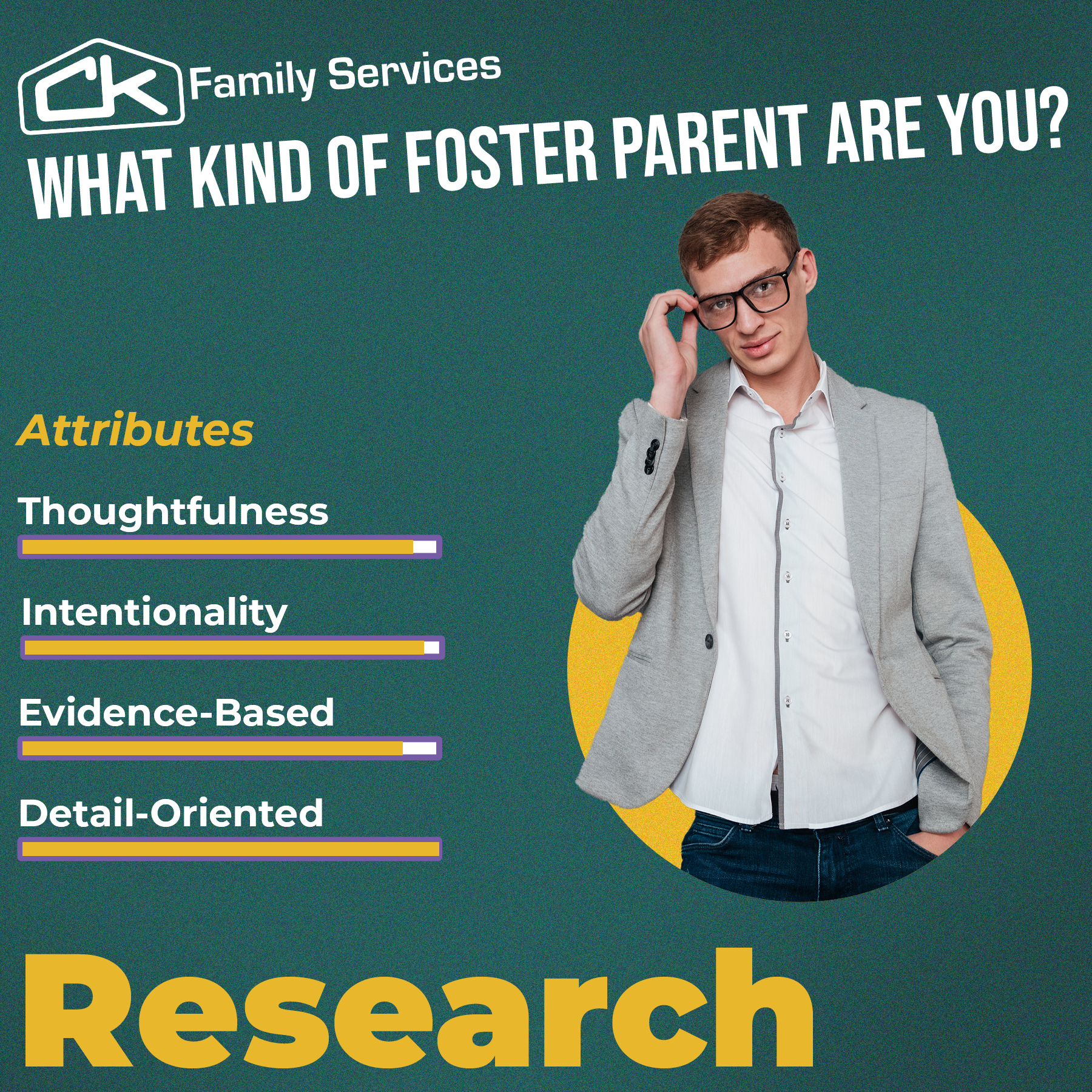Foster parenting isn’t one-size-fits-all. Every child comes with unique needs, and every foster parent brings their own strengths, skills, and personality to the journey. Some thrive on structure and organization, while others are natural connectors who build relationships with ease. Some love diving into research to solve problems, and others are big-picture visionaries who see the possibilities in every challenge.
The Culture Index study identifies four approximations to standardized tendencies—Organizational, Social, Research, and Visionary—each of which can play an important role in foster care. No single type is “right.” Instead, it takes all of us, working together, to create a supportive, well-rounded community for children who need it most.
Which one sounds like you?
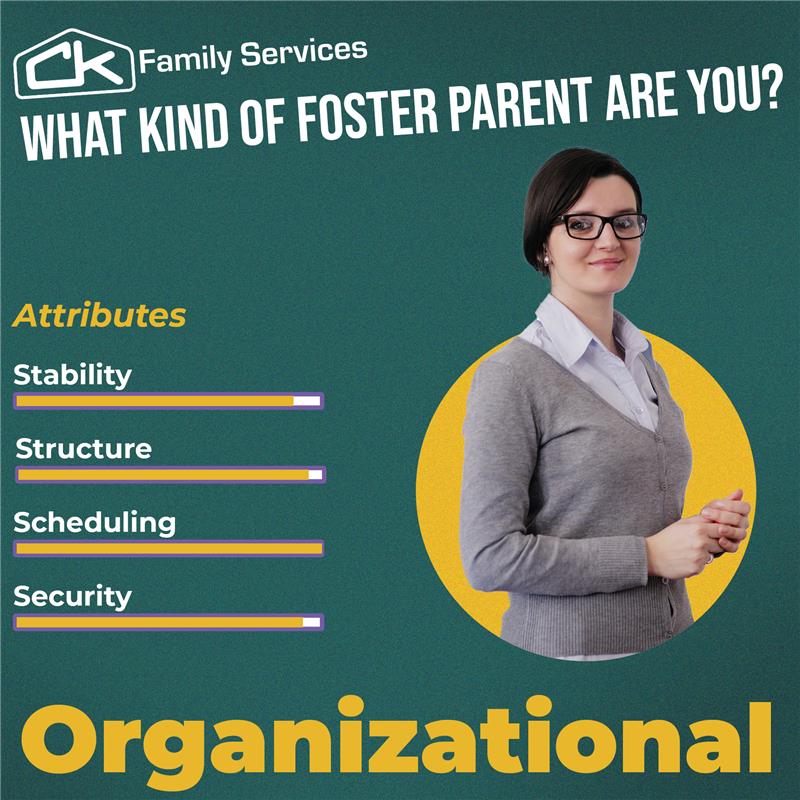 The Organizational Foster Parent: Wendy
The Organizational Foster Parent: Wendy
“I like a plan, a system, and a schedule—because kids thrive on structure.”
Wendy is the kind of person who has a spreadsheet for everything. Her calendar is color-coded, and she’s got emergency contact numbers on the fridge, in her phone, and memorized. But beyond the schedules and sticky notes, Wendy’s heart is in the details.
She knows that structure makes kids feel safe, so she makes sure bedtime is predictable and mornings are as stress-free as possible. She remembers which stuffed animal helps a child sleep better and makes sure there’s always their favorite cereal in the pantry. To Wendy, organization isn’t about control—it’s about creating stability for kids who’ve never had it.
She’s the one keeping track of appointments, advocating at school meetings, and making sure every child in her home feels like they belong.
Her strength: Bringing order to chaos and ensuring everyone stays on track.
Her challenge: Learning to be flexible when things don’t go according to plan.
The Research Foster Parent: Nicolas
“I like to understand the details before I act. The more I know, the better I can help.”
Nicolas is naturally curious and analytical. He dives into books, articles, and training materials, always looking for the best ways to support the children in his care. If a child has a particular challenge, Nicolas won’t stop until he’s found research-backed strategies to help.
His ability to gather information and apply it makes him a strong advocate for the children in his home. He collaborates with therapists, educators, and caseworkers, ensuring that every decision is informed and intentional. Nicolas knows that knowledge is power, and he uses it to give the children in his care the best possible support.
- His strength: Gathering and applying knowledge to meet the unique needs of each child.
- His challenge: Balancing his love for research with the understanding that sometimes, simply being present and offering comfort is the best solution.
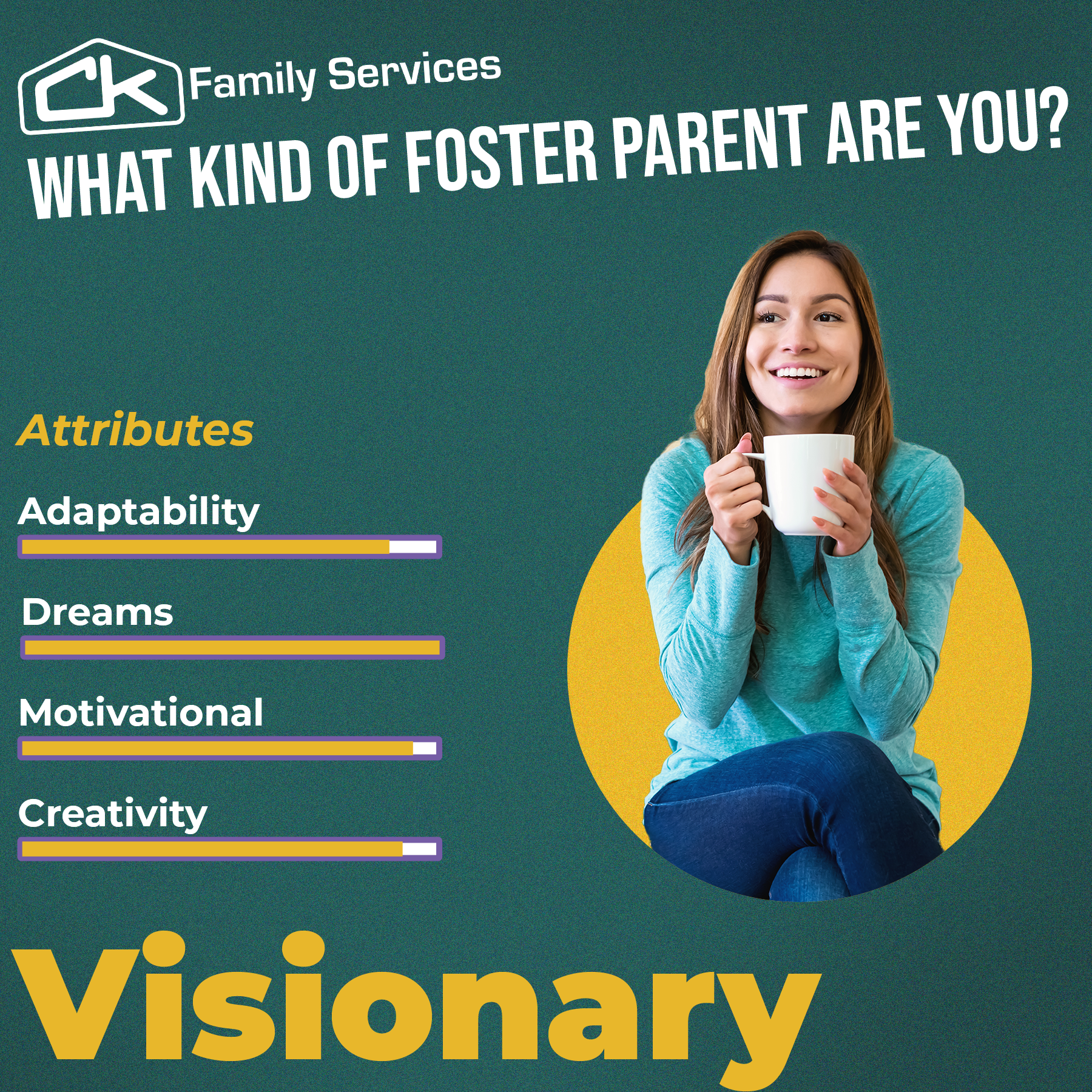 The Visionary Foster Parent: Maria
The Visionary Foster Parent: Maria
“I see potential in every child, no matter their struggles.”
Maria is a big-picture thinker. She believes that every child has a bright future, even if they can’t see it themselves yet. She’s the kind of person who encourages kids to dream big, helping them imagine possibilities beyond their current situation.
Her home is a place where children are reminded that they are more than their circumstances. Whether it’s exposing them to new experiences, encouraging their creativity, or helping them find their passion, Maria is always thinking about the long-term impact she can have on their lives.
She knows that transformation takes time, but she’s in it for the long haul. Her unwavering belief in each child fuels their own self-confidence and sense of worth.
- Her strength: Instilling hope, vision, and confidence in the children she cares for.
- Her challenge: Staying grounded in the present and focusing on small, daily victories.
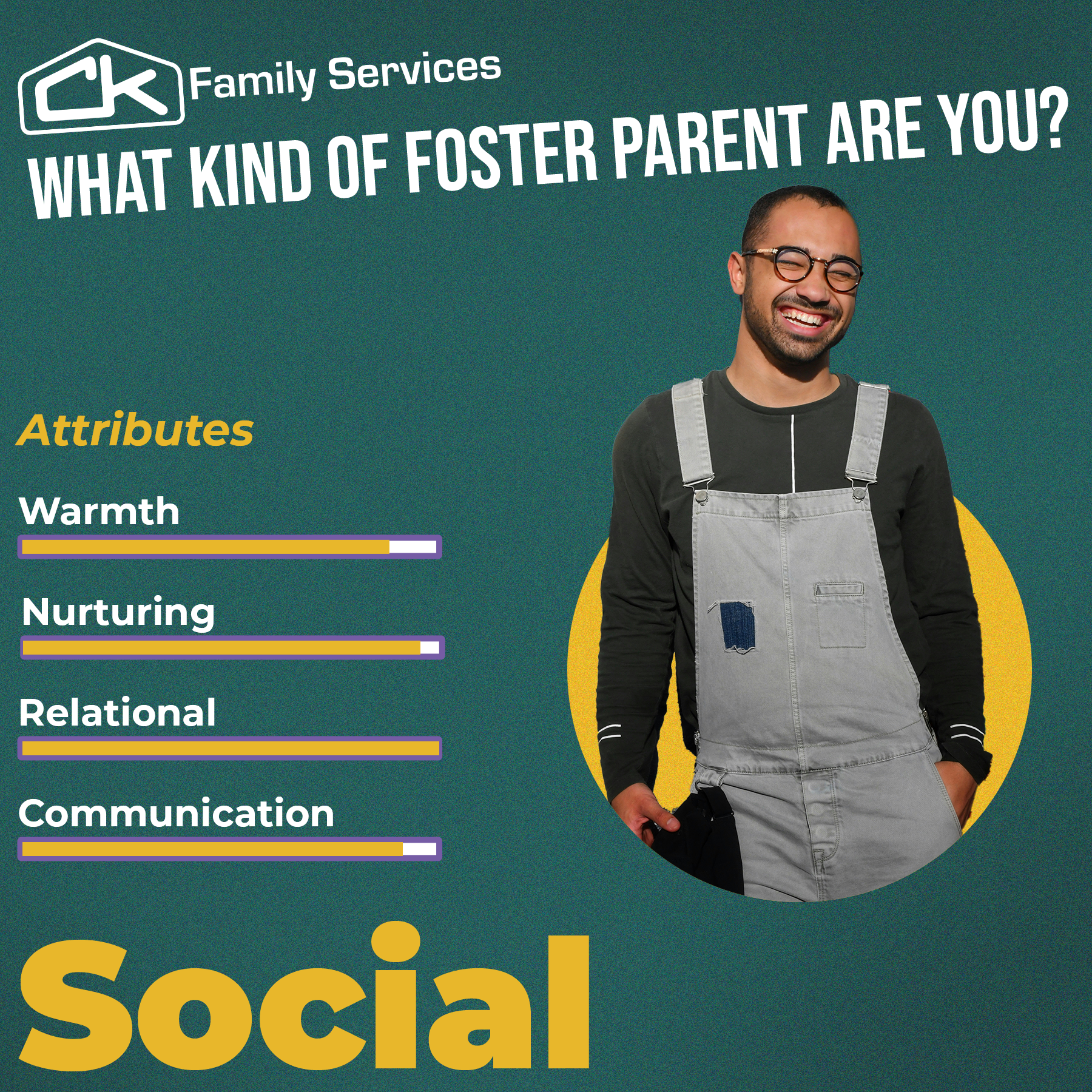 The Social Foster Parent: Demarcus
The Social Foster Parent: Demarcus
“Connection is everything. Kids need to feel like they belong.”
Demarcus is the heart of every room he enters. He builds relationships easily, making children feel safe, seen, and valued from day one. He’s the one organizing game nights, planning outings, and making sure every child has a community of support around them.
For Demarcus, being a foster parent isn’t just about providing a safe home—it’s about building meaningful relationships. He knows that kids who feel connected are more likely to thrive, so he makes sure they always feel included, whether it’s within his family, at school, or in extracurricular activities.
He’s the one teaching social skills, helping kids express their emotions, and making sure they have a strong support system in place, even after they leave his home.
- His strength: Building deep, meaningful relationships that help children heal and grow.
His challenge: Remembering to enforce boundaries and take care of himself, too.
No matter what your personality or natural giftings, you bring something valuable to the table. Foster parenting takes all kinds of people with different strengths, working together to create a safe and loving space for children. There’s a place for you in this journey. And no foster parent can do it alone. We all need a community of support around us. That’s why training, resources, and fellow foster families are so important.
Learn more about fostering today: FOSTER PARENTING


